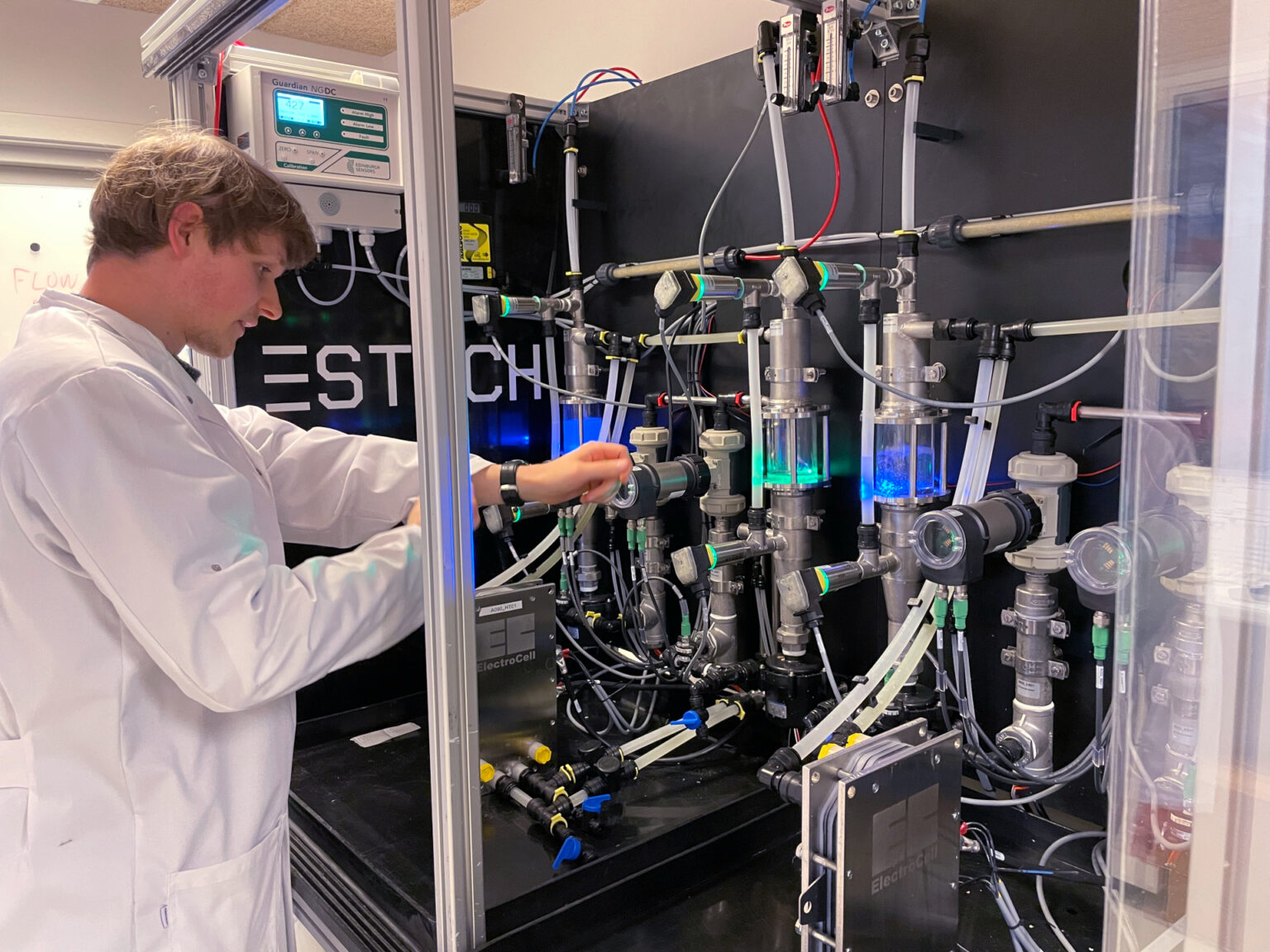Claims, Counter-Claims And Science
The use of scrubbers to meet IMO sulphur emission limits is growing but is also increasingly controversial, with scientific research results being used both for and against this technology

The use of scrubbers has got to be one of the most contentious environmental issues for the shipping industry apart from the ongoing decarbonisation debate. At IMO opinions among member states are sharply divided with some opponents calling for not only open-loop systems to be banned but also closed-loop ones as well.
Those wanting to see scrubber use phased out have been buoyed up recently by Sweden’s decision to ban the use open-loop scrubbers as of 1 July this year and even of closed-loop systems as of 1 January 2029.
Meanwhile the uptake of scrubbers continues as considerable effort is put into developing scrubber technology to remove CO2 from emissions (See our Carbon Capture report on page 67). It has not escaped the notice of both sides in this argument that killing off scrubbers now would also stop progress towards carbon emission free technologies that could continue to use fossil fuels. That is anathema to some and seen as common sense by others.
Anders Skibdal, CEO of scrubber manufacturer PureteQ Group, tells World Bunkering: “Notably, 25% of newbuild vessels opt for scrubbers, while the majority of dual-fuel ships also integrate scrubber systems, indicating a pragmatic approach considering the limited availability and cost of new fuels in the foreseeable future.”
Skibdal says his company’s main business is servicing all brands of scrubbers globally. He says: “Currently, we cater to over 25% of scrubber-fitted vessels worldwide. Scrubbers are ageing so we provide comprehensive pre-inspections for impending 5-year drydockings. Our drydocking services encompass overhauling crucial components like pumps, fans, internal structures, and compliance equipment that necessitate attention when scrubbers are operational.”
Asked how the scrubber market is developing, he says: “In response to the evolving SECA status of the Mediterranean Sea, many vessel owners are upgrading their water treatment systems for longer voyages. These include PureteQ’s Purepass stand-alone filtration unit.”
“Even in Europe,” he adds, “we witness a trend of smaller vessels adopting scrubber retrofits, despite the cost disparity between HFO and low sulphur fuels.”
Is Skibdal worried attempts by some green campaigners to have scrubbers banned completely. He responds: “Scrubbers play a crucial role in enabling the installation of solvent-based Onboard Carbon Capture Systems (OCCS) on ships. With the increasing presence of EGS and ICER systems (which also incorporate scrubbers), along with the necessity of scrubbers for new fuels to address unwanted emissions, concerns are mitigated. Scrubbers serve as highly efficient technology that captures airborne emissions, converting them into a manageable form without causing pollution; the real concern lies with fuel emissions. A scientific perspective suggests that environmental advocates focus on influencing policymakers to reinforce emission regulations rather than targeting scrubbers. Shipowners may need to transition from open-loop scrubbers to hybrid or closed-loop systems. The emphasis should be on setting clear requirements, ensuring legislation, and effective monitoring to drive technology advancements in compliance with evolving limits.”
On the other hand the rhetoric against scrubbers is ramping up. Reporting Sweden’s scrubber bans the journal Offshore Energy recently wrote: “Our planet’s oceans are set to get a little bit cleaner thanks to a new ban tidying up the shipping industry in Sweden.”
It reported Romina Pourmokhtari, Sweden’s Minister for Climate and Environment, as saying: “Emissions from ship scrubbers are — even in very low concentrations — harmful to our marine environment.”
As Offshore Energy noted approvingly: “The ban in Sweden is part of a larger global effort to ban emissions from scrubbers and protect open seas worldwide. Finland’s government has already decided to prohibit scrubber water from being discharged in the ocean, and Denmark is working toward banning the practice soon as well. Yet, since oceans have no borders, pollution from scrubbers in one region has the potential to spread all over. Ultimately, a global scrubber discharge ban is needed to address the broader issue and replace heavy fuel oil with more sustainable alternatives.”
Sweden’s position on scrubbers has been heavily influenced by research carried out by the country’s Chalmers University of Technology. It reported in 2022 that a study showed that the discharge water from ships’ exhaust gas treatment systems was responsible for up to 9% of certain emissions of carcinogenic and environmentally harmful substances in the Baltic Sea, which was “considerably more than was previously known”.
However, the results of a newly published major study challenge the basis of much of the opposition to scrubbers. A peer-reviewed study conducted by the Massachusetts Institute of Technology and the Georgia Institute of Technology in cooperation with Oldendorff Carriers finds that for large, ocean-going bulk carriers operating in open seas, heavy fuel oil (HFO) used with a scrubber can, in various instances, outperform low-sulphur fuels when assessed from a life cycle perspective.
The study was commissioned by Oldendorff in 2021 to generate independent data on scrubber performance under real operating conditions. Testing was carried out during a voyage of the 209,131 dwt Hedwig Oldendorff from Taicang to Hong Kong.
The study also provides scientific evidence that open-loop scrubber washwater discharges are well within IMO environmental thresholds, while being significantly lower than stringent US and EU limits for municipal and industrial effluents. Even under a conservative 1,000-fold dilution assumption, the expected final concentrations in receiving water bodies remain significantly below EU environmental quality standards and US EPA water quality criteria for marine ecosystems.
“Studies like this are urgently needed to resolve complex environmental questions, uncover unknowns, and support science-based policy and decision-making in the shipping sector and beyond. While many reports have been released on this topic, peer-reviewed studies are limited. The peer-review process is essential to ensure scientific rigour and build trust in the results.” Patricia Statehouse, Assistant Professor in the School of Chemical and Biomolecular Engineering at Georgia Tech and Lead Author of the study, states.
According to Oldendorff, most earlier studies evaluating scrubber impact lacked a complete well-to-wake life cycle assessment, and many were based on outdated data from first-generation systems. These limitations “contributed to continued regulatory uncertainty”. The company says that the new study, published in the American Chemical Society journal, Environmental Science and Technology, addresses those shortcomings, using up-to-date data on air and washwater emissions from a modern scrubber system operating at sea.
“This study demonstrates the scientific complexity of the waste stream of scrubbers. Having finally conducted a multi-year, comprehensive and peer-reviewed study, commonly held fears and assumptions are now put to rest. For far too long, regulators and the shipping industry have relied on outdated or incomplete scientific analysis when developing regulations with profound financial impact on shipping,” Scott Bergeron, Managing Director Fleet at Oldendorff Carriers, concludes.
Image Credit: PureteQ
30/05/2025
get
in touch

Constructive Media
Constructive Media
Hornbeam Suite
Mamhilad House
Mamhilad Park Estate
Pontypool
NP4 0HZ
Tel: 01495 239 962
Email: ibia@constructivemedia.co.uk

On behalf of:
IBIA London Office
Suite Lu.231
The Light Bulb
1 Filament Walk, Wandsworth
London, SW18 4GQ
United Kingdom
Tel: +44 (0) 20 3397 3850
Fax: +44 (0) 20 3397 3865
Email: ibia@ibia.net
Website: www.ibia.net

Emails
Publisher & Designer: Constructive Media
ibia@constructivemedia.co.uk
Editor: David Hughes
anderimar.news@googlemail.com
Project Manager: Alex Corboude
alex@worldbunkering.net
